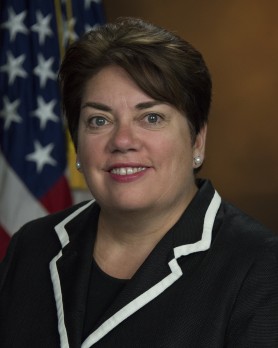Leslie Caldwell, Assistant Attorney General for the Criminal Division, expressed some surprising views yesterday at a Federalist Society event on criminal overreach at the National Press Club in D.C.
As reported by Jody Godoy of Law 360,
She observed that the “quality of the lawyers” and resources varies greatly between U.S. attorney’s offices.
“I acknowledge there are cases that get filed that shouldn’t be filed. There are districts where the oversight is not what it should be. The experience level is not what it should be,” Caldwell said.
She said DOJ Criminal Division attorneys get “far more robust” training than federal prosecutors out in the states do. And when asked about how the DOJ enforces a provision in the U.S. attorney’s manual advising prosecutors to consider noncriminal options, Caldwell replied that the manual is “much more regularly used in Washington, in the Criminal Division, than it is in the field.”
She encouraged attorneys to raise concerns with DOJ headquarters, known as Main Justice, and gave a couple of anecdotes illustrating how higher-ups killed ill-conceived cases.
In one instance, Caldwell said, Main Justice put the brakes on an attempt by an unnamed U.S. attorney to indict two partners at a major Chicago law firm who were representing a corporate client. The lawyers had attempted to get more time to respond to a subpoena and were nearly hit with an obstruction-of-justice charge.
“That prosecutor had never had that conversation before with a defense lawyer. That prosecutor didn’t know that that’s how things work … supervisory ranks did not recognize that that was not obstruction of justice,” Caldwell said, adding “thank goodness” a review by Main Justice was required.
Another time DOJ higher-ups stepped in, according to Caldwell, was when a small district attempted to indict all the adult residents of a town on racketeering charges since they were members of a religious sect that got its income through government program fraud.
In another example Caldwell gave, the DOJ in Washington played a mitigating role when a U.S. attorney tried to get high penalties for a bank facing treasury sanctions violations.
The cases illustrate that escalating concerns with a case can sometimes be effective, Caldwell said.
“It’s not always going to work when you appeal beyond the line attorney, but we recommend that if you feel strongly about a case, you at least ask to be heard,” Caldwell said.
NAFUSA member John Richter, another member of The Federalist Society panel remarked, according to Godoy, that even at DOJ headquarters, other sections lack criminal experience. Richter, a partner at King & Spalding, had represented Vascular Solutions, Inc., a medical device company that was acquitted of criminal off-label promotion earlier this year in a case prosecuted by a U.S. Attorney’s office and a unit from Main Justice.
Click here to view video of The Federalist panel discussionhttp://www.fed-soc.org/multimedia/detail/the-limits-of-federal-criminal-law-event-audiovideo



You must be logged in to post a comment.